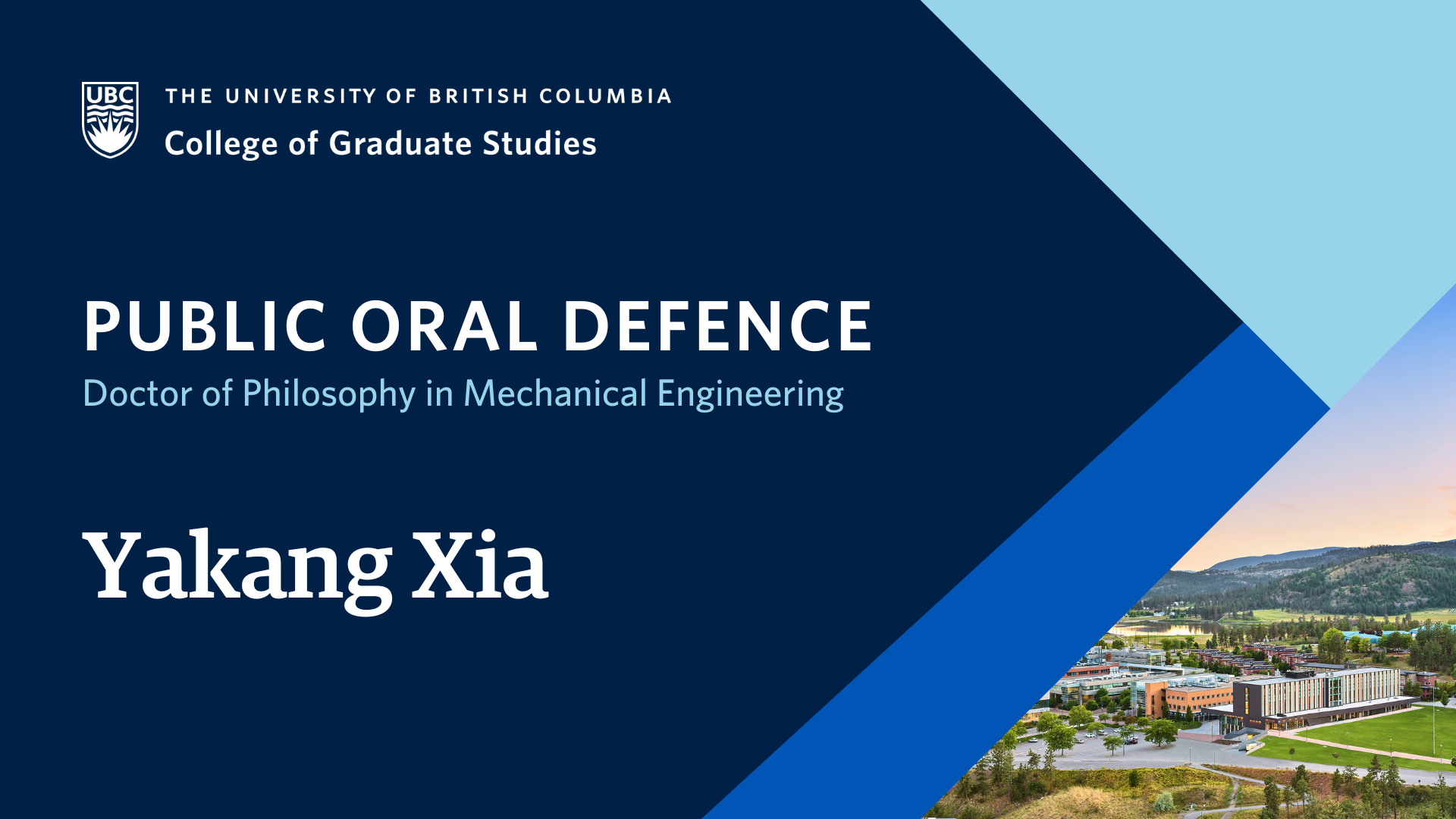
- This event has passed.
Dissertation Defence: Influence of surface characteristics on pool boiling heat transfer
September 1, 2023 at 1:00 pm - 5:00 pm

Yakang Xia, supervised by Dr. Sunny Li, will defend their dissertation titled “Influence of surface characteristics on pool boiling heat transfer” in partial fulfillment of the requirements for the degree of Doctor of Philosophy in Mechanical Engineering.
An abstract for Yakang Xia’s dissertation is included below.
Examinations are open to all members of the campus community as well as the general public. Registration is not required for in person defences.
ABSTRACT
Pool boiling is a promising solution for meeting the heat dissipation requirements in high-heat-flux applications such as supercomputers, nuclear reactors, and laser generators. Surface characteristics greatly influence boiling heat transfer, which makes it crucial to understand their impact for enhanced heat transfer surface design. However, certain aspects of pool boiling, especially bubble behaviors and heat transfer with wettability contrast remain unclear. This thesis investigates the influence of surface wettability, textures, and orientation on pool boiling heat transfer using water as the working fluid. The research includes five steps. Firstly, thin-film heaters are fabricated to ensure uniform heat flux and enable precise temperature measurements with an infrared camera. Microstructures are created on the boiling surface using laser ablation. Together with silanization grafting by chemical vapor deposition, different wetting surfaces ranging from SHI to SHO are produced. Secondly, experimental studies are conducted focusing on observing injected air bubble formation and motion behaviors to understand the effects of surface wettability. Results demonstrate that surface wettability significantly influences bubble size and departure frequency, and bubbles spread to the super-hydrophobic region due to wettability contrast. Thirdly, pool boiling tests on different wetting surfaces show differences in vapor bubble formation and departure. Nucleate boiling curves indicate that the heat transfer coefficient and critical heat flux generally increase as surface wettability transitions from SHO to SHI. The quantitative assessment of surface effects using the surface-fluid factor confirms higher values for super-hydrophobic surfaces. For hydrophilic surfaces, the effect remains relatively constant over the nucleate boiling range, while hydrophobic surfaces show dependency on heat flux. These findings are consistent with boiling tests on a biphilic surface comprising both SHO and SHI regions. Fourthly, a biphilic surface is designed to enable vapor bubbles to move on the surface, resulting in enhanced heat transfer compared to a SHI surface. The driving force responsible for the directional spontaneous bubble movement on the surface is analyzed. Furthermore, investigating the influence of surface inclination angle reveals better heat transfer performance in vertical pool boiling. This study not only elucidates the influence of surface wettability on bubble behaviors and heat transfer but also provides valuable insights for understanding and optimizing the surface design to enhance boiling heat transfer.